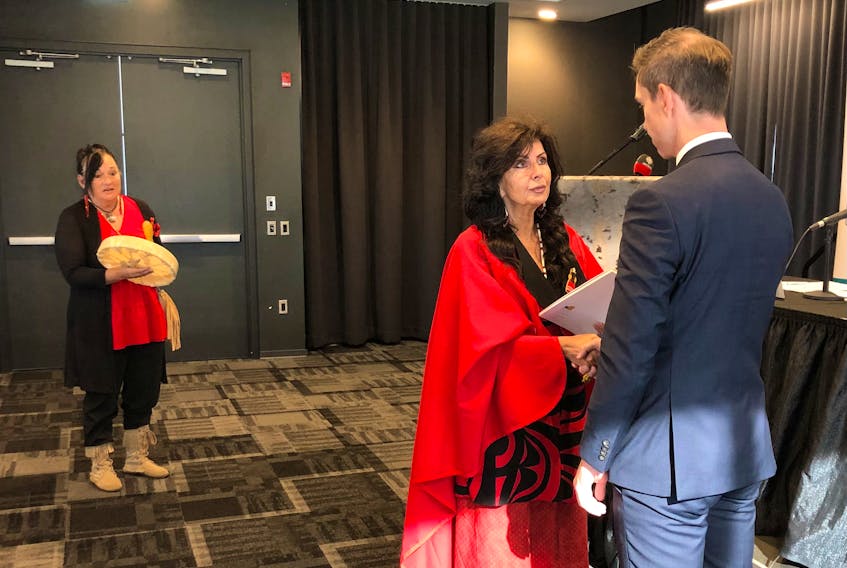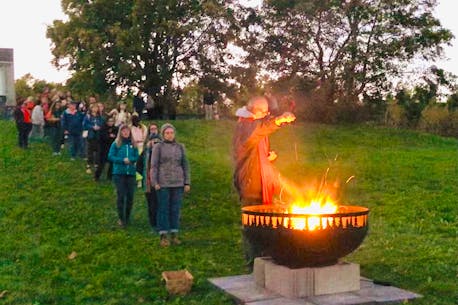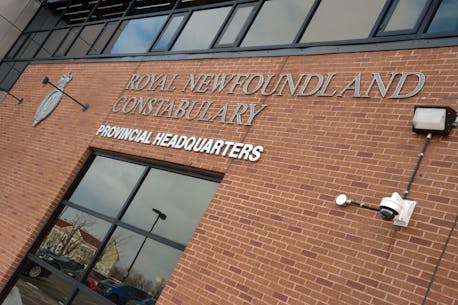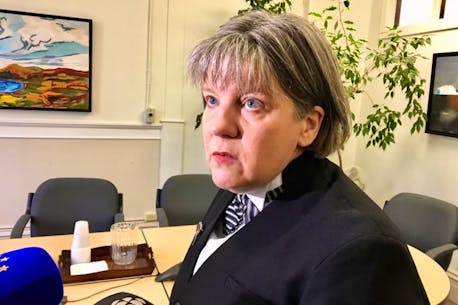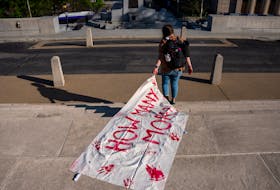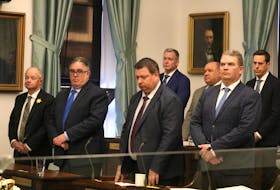ST. JOHN'S, N.L. — It took 15 months of research, consultation and public engagement, and its central proposal has the endorsement of law groups, academics and almost nine out of 10 residents of Newfoundland and Labrador.
But Justice Minister John Hogan was making no promises after being handed the 64-page final report of the First Voice Working Group on Police Oversight Tuesday, Oct. 4, in downtown St. John’s.
“It’s been implemented in other provinces in this country. It’s worked in some and it hasn’t worked in others,” Hogan told reporters, referring to a key recommendation to establish a civilian-led board to oversee community policing and training policy for the Royal Newfoundland Constabulary. “So I need to look at exactly what the recommendations are and the specificities around it.”
Hogan said he’d already committed to look at whatever the working group comes up with when he met with them in early 2021.
“I really appreciate the work that this group did,” he said, but added, “there are other stakeholders and we do have an obligation … to perhaps do our own research and follow up on things as well.”

Hogan said he does not deny the longstanding testimonials Indigenous people have given over the years of racist treatment by police.
“I do accept everything that was said here today about problems that Indigenous groups and other marginalized groups in this province have felt through lived experiences,” he said.
However, he said, the cost to implement any of the proposals will have to be scrutinized.
"I’m one minister in the government. I don’t have control over the public purse,” he said.
It’s not clear from the report how much an oversight board in the province would cost, but commissioners on the one that oversees the Halifax Regional Police are not paid, and the board has a very limited budget.
‘Not good enough’
Opposition justice critic Helen Conway Ottenheimer wasn’t pleased to learn the minister had remained non-committal in his remarks.
“The minister of Justice and Public Safety must take heed here,” she said.
“It’s not good enough that he can’t commit to at least that implementation of a civilian board of oversight.
“We know that the public supports this. They want to see a police force that represents them,” Conway Ottenheimer said, adding that it would help police do their jobs.
“If we had the support of the public, and if the public have confidence and support in the police force, then that will make the difficult work that they have to do not as hard.”

The report, titled “Building Trust, Restoring Confidence,” has received the support of numerous community and women’s groups, as well as explicit endorsements by the Assembly of First Nations and a group of professors at Dalhousie University’s law school.
A recent MQO Research poll found 88 per cent of respondents in this province either fully or mostly support the formation of a civilian-led oversight board.
Stacey Howse, executive director of the First Light friendship centre, said Tuesday she and others have heard anecdotal evidence of discrimination since the centre first opened in the 1980s.
“These problems include mistreatment by police officers, systemic racism within law enforcement and a loss of confidence in the justice system when police are seen not to be held accountable for their actions,” Howse said.
She cited the recent finding of an Assembly of First Nations probe of police behaviour in the province by both the RNC and the RCMP.
“These behaviours include the confiscation of sacred items such as eagle feathers and medicine bundles, physical intimidation and openly mocking cultural traditions.”
‘Tired of waiting’
As well as the creation of an oversight board, the report’s 26 recommendations call for measures to streamline and strengthen the role of both the Public Complaints Commission and the Serious Incident Response Team. In terms of the former, one proposal would be to completely remove the police chief from the process.

Catherine Fagan, who co-chairs the working group along with Caitlin Urquhart, said she wants to see the government take their 26 recommendations seriously.
“We hope that they won’t be watered down. An oversight board can only provide meaningful change if it has a meaningful role and power,” she said.
“We would like to hear that there’s a commitment to some of the more basic aspects of our recommendations today.”
Urquhart said the recommendations would not completely fulfill the province’s need to act on calls for justice contained in the Missing and Murdered Indigenous Women and Girls (MMIWG) final report, but would establish a community-driven process for getting there.
“Time and again we’ve heard politicians and decision-makers applaud the work of MMIWG national inquiry and others like it, and then fail to take concrete steps to implement recommendations, and we’re tired of waiting,“ she said.
"An oversight board can only provide meaningful change if it has a meaningful role and power."
— Catherine Fagan
When it came time to present the report to Hogan, Mi’kmaw elder Marjorie Muise played a traditional drum and sang in the background as traditional Mi'kmaw knowledge keeper Margaret Cranford held a subdued conversation with the minister.
Hogan was reluctant to divulge what was said, but did highlight one comment.
“The one word that stuck with me was ‘reconciliaction.’ You’ve heard about truth and reconciliation. She said reconciliaction. That’s the word I will take away from that conversation.”
Peter Jackson is a Local Journalism Initiative reporter covering Indigenous affairs for The Telegram.

